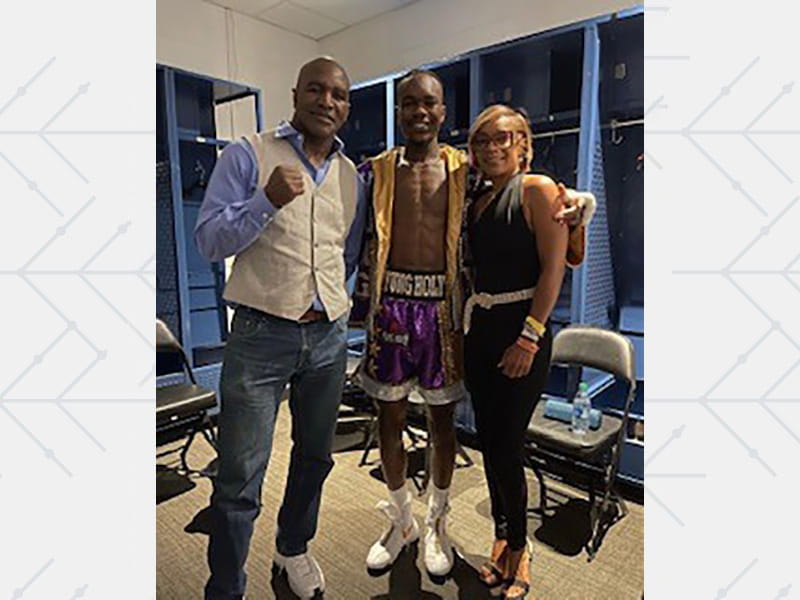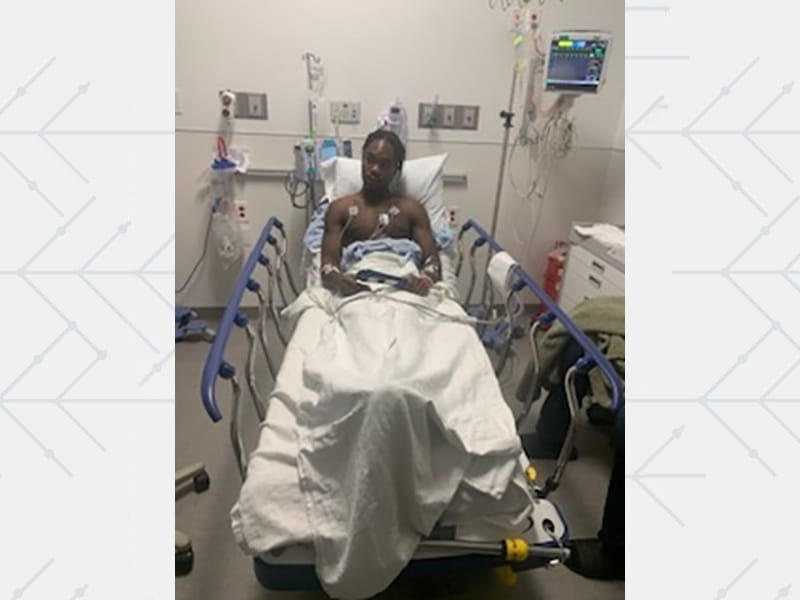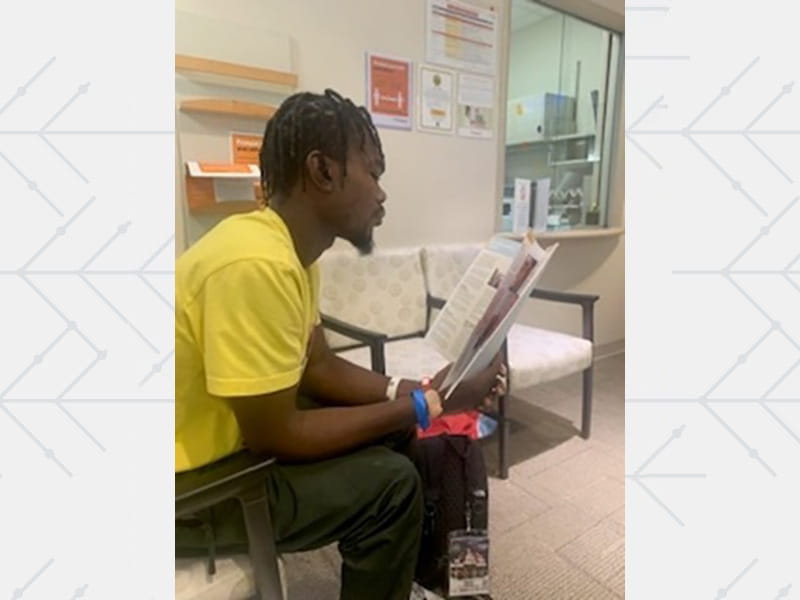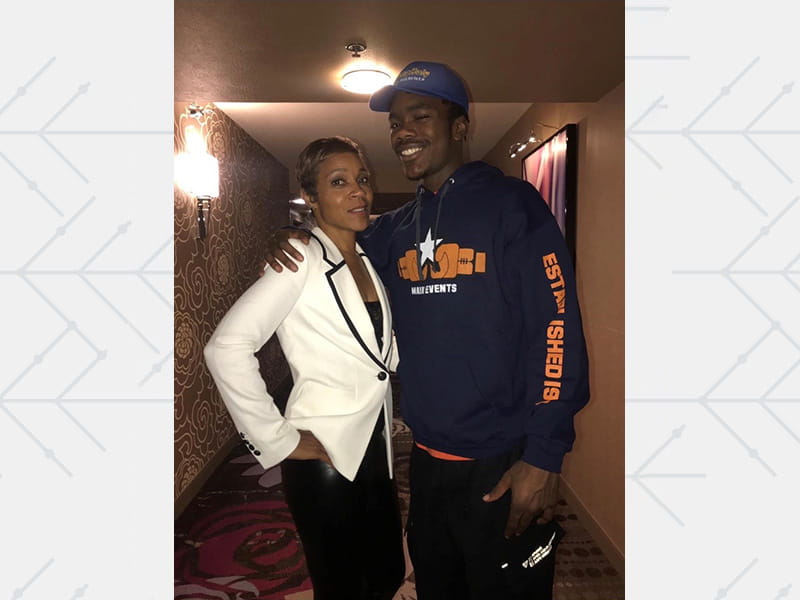Son of a boxing great struggled in the ring. It was a life-threatening heart condition.
By Emily Halnon, American Heart Association News

Boxer Evan Holyfield was only a few minutes into a fight when he felt “like I was deep in one of the hardest physical challenges of my life.”
It made no sense. At 25, he was in great shape, as evidenced by his 13-1 record.
The son of former heavyweight champion Evander Holyfield, Evan prided himself on being able to outwork his competition. He’d been putting in long hours sparring and building his aerobic fitness and strength. He should feel great in the ring – not walloped after just three minutes, after just one round.
But that fight wasn’t the first time that he felt off.
Evan had felt sick and out of shape at a training camp in Colorado a few weeks earlier; he chalked it up to the altitude. When he threw up in his mouth at the end of other fights, he thought it confirmed how hard he was working. He pictured cinematic montages of athletes pushing themselves to their limits.
He figured he needed to train harder to feel better. Evan asked his coach if he could train harder or double down on his workout regimen to get ready for the next fight.
A few days later, Evan went for an easy run around his neighborhood. He wore headphones to listen to music as he ran, but his heart started beating so fast and loud, he could hear it over the song.
“We should probably ease up a little on my strength and conditioning,” he told his coach.
Evan still had a fight to get ready for – one that was in just three weeks. He needed to spar every day to make sure he was sharp once he stepped into the ring.
But the sparring didn’t feel right, either. He couldn’t get past the second round of practice without feeling nauseous or vomiting – a big problem considering his next fight could go eight rounds.
Two weeks before the fight, Evan was at home when his breathing quickened and his heart raced. He thought it was an anxiety attack.
He told himself to chill out and went to bed.
When he woke up the next morning, he felt like someone was standing on his chest.
When he got to the gym, Evan asked his mother, Toi Irvin, and his coach if he could talk to them. “I struggled to breathe last night and felt like something heavy was on my chest,” he told them. “I think I’m dealing with a lot of anxiety around this fight.”
They told him to go to urgent care.

At the clinic, Evan told the doctor he’d had an anxiety attack because of his next fight.
The doctor said he wanted Evan to get an electrocardiogram, a test that examines the heart’s electrical signals.
“No,” Evan said. “There's no need to do that. I’m 25 years old. I'm a professional athlete. I'm eating the right things, I train two or three times a day, I just won a fight three weeks ago. Heart problems are the last thing I could have.”
But the doctor insisted, explaining he was following protocol for the symptoms Holyfield had described.
As they hooked Evan up to run the test, he couldn’t stop thinking, “This is a waste of time.”
His doctor came back in. “Something abnormal came up,” he told Evan. “I’m going to run this test again.”
The doctor administered the test again. And again. The results were the same, and Evan was rushed to an emergency room. More tests revealed that he had a right coronary anomaly, a congenital heart defect where the coronary artery that supplies blood to the heart is abnormally shaped. The condition can lead to fatal heart failure.
The cardiologist pointed to a spot on a CT scan. It showed Evan how the artery was pinched and restricting the flow of blood.
“My doctor told me that if I went into that next fight, I could have died because of how hard I was pushing myself,” he said.
The doctor told Evan the coronary artery could be repaired, restoring a healthy blood flow to his heart. However, it would require open-heart surgery.
Evan asked his surgeon: “Will I be able to box again?”

He knew a heart condition had interrupted his father’s boxing career in 1994 at age 31. Evan feared that he was facing the same fate.
But because Evan’s condition was essentially a structural problem, the doctor said he should be able to heal and fight again. The doctor also said he would reinforce Evan’s chest with a titanium plate to better protect his heart from the impact of punches.
“I hope to see you in a championship fight someday,” the surgeon said.
The surgery went well. Then came one of Evan’s toughest fights yet: recovery.
“The mental part of recovery was so hard,” he said. “I’d gone from being a 25-year-old professional athlete to feeling like I could barely put my shirt on or walk all the way to the bathroom.”
Evan had been an extremely driven athlete for most of his life. So as he battled all the physical and emotional challenges – plus many financial and logistical complications – he set another goal for himself. He was going to get healthier and stronger than ever. And he was going to box again.
He went to cardiac rehabilitation three times a week, where he was often the youngest attendee by several decades. He asked his friends and family for emotional support. And he brought home a dog, Bouba, a doodle who needed him to go for walks and take him outside – and helped give him purpose, and comfort, each day.
“I’ve always been impressed by his boxing and athletic strength,” said Irvin, his mom. “But all of that is nothing compared to the emotional strength and resilience that this young man showed through his recovery.”

Evan – who goes by the nickname “Yung Holy” – didn’t fight from June 2023 until this past July. He won his first bout, a first-round knockout. He fought again in August – and won. His next bout is expected in October.
“I know I have more to give,” he said, “and I want to see what I can do with a good heart.”
Stories From the Heart chronicles the inspiring journeys of heart disease and stroke survivors, caregivers and advocates.





